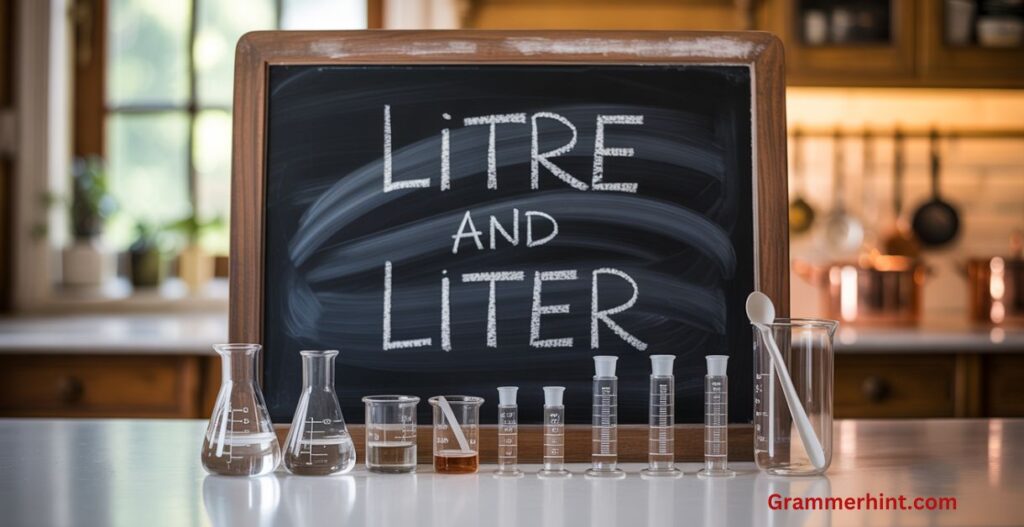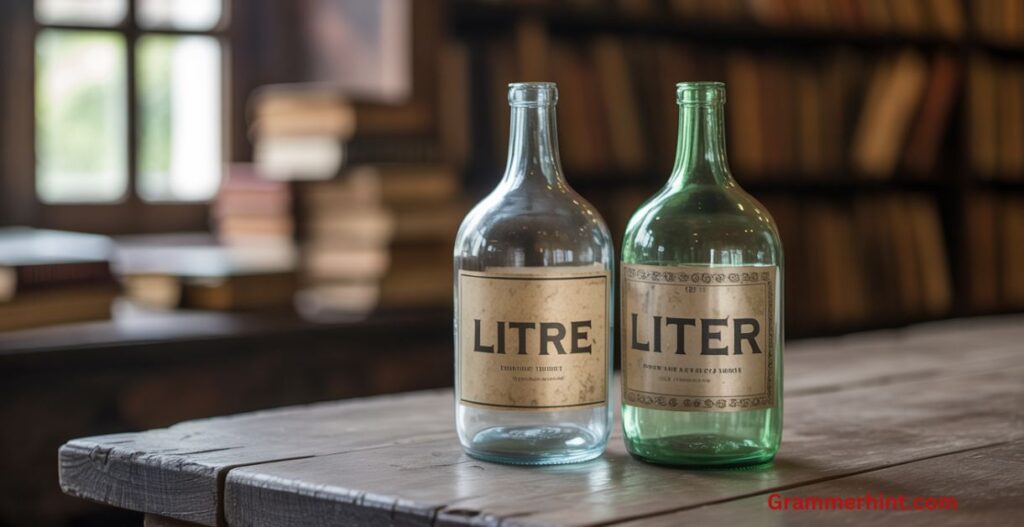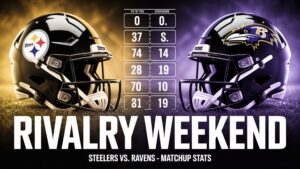In English, Litre / Liter causes confusion for many readers and writers. At its heart lies a simple rule: American English uses liter, while British English prefers litre.
This spelling difference reflects broader regional spelling conventions and even touches on language standardization. In this article, we’ll explore the origins, usage, and scenarios for choosing one over the other. Along the way, you’ll find practical examples emails, technical notes, and everyday writing to help you decide when to use liter vs litre with confidence.
What’s Behind Litre vs. Liter?
Etymology and Historical Roots
The word traces back to French word “litre“, which itself comes from the Medieval Latin “litra”, then ultimately the Greek “litra”, and even the Latin “libra”—a unit of weight. This lineage demonstrates how measurement terms span cultures and centuries.
The metric system, developed in France in the late 18th century, made “litre” official. Later, language differences emerged across English-speaking regions. These led to the split: British spelling stuck with “litre,” while American scribes favored a simplified form—liter.
Standardization and Spelling Reforms
Noah Webster’s reforms in the early 19th century helped formalize differences like color/colour and meter/metre. That movement shaped the American preference for liter. But it also sparked debates among educators and academics about spelling variations.
Even today, style guides maintain those choices. The Associated Press Stylebook calls for “liter,” while the Oxford Style Manual insists on “litre.” This reflects a commitment to style guide consistency in academic writing and technical documentation.
Understanding Spelling Differences: Liter vs. Litre

Regional Spelling Conventions
American English: liter
British English: litre
No matter your audience Canada, Australia, India liter or litre which is correct depends on your variant of English.
Impact on International Standards
Although the unit of volume remains the same, the spelling differs:
- Metric system ensures that 1 liter (or litre) equals 1,000 milliliters.
- In scientific circles, this unit is standardized under SI units, regardless of spelling.
For scientific writing, the spelling matters less than unit consistency. Whether “liter” or “litre,” the key is matching the rest of your document’s language localization style.
Common Contexts for Litre vs. Liter
Let’s look at realistic settings where choosing the right form matters.
Email to a Colleague
Scenario: You’re emailing a UK colleague about test sample volumes.
Subject: Sample Volume Update
Hi Sarah,
Just a quick update—each sample in the beakers now holds 250 milliliters, which equals 0.25 litre. We’ll need at least 2 litres for the full experiment.
Cheers,
Raj
In the UK, we write litre and litres. The plural form follows the standard English pluralization rule.
Memo from U.S. Lab Manager
To: Team
From: Dr. Michael
Re: Fuel Tank Calibration
Hi team,
Be sure to calibrate the fuel tank using 1 liter of calibration fluid. That equals about 33.8 fluid ounces.
Thanks,
Michael
American writers say liter and fluid ounces without confusion.
Product Description for Bottles
We have a range of bottles:
- 0.5‑liter reusable water bottle (U.S. model)
- 0.5‑litre version for export to the UK and Europe
This ensures consistency in writing for marketing materials across regions.
Academic Article in British Journal
Heading: Volume Measurement in the Metric System
We measured each sample to 10 milliliters before combining them into a 1 litre flask. According to International standards, this volume corresponds to 1 000 milliliters.
British usage prevails.
Technical Documentation for American Market
Illustration 5.2 – Fuel Gauge Calibration Procedure:
- Insert 1 liter of test fluid into the fuel tank.
- Use calibrated beakers to check return flow.
- Record measurements in milliliters.
Technical manuals prefer liter, even when citing Metric system values like milliliters and fluid ounces.
Other Spelling Pairings: Comparisons

Litre vs Liter isn’t the only pair confusing writers. Consider:
- Litter vs. Liter – “Litter” (trash, cats) vs. liter (volume).
- Coach vs. Couch – various furniture or travel terms.
- Re‑sign vs. Resign – “re‑sign a document” vs. “resign a job.”
These examples show how a tiny change alters meaning entirely.
Why Consistency Matters
- In academic writing, inconsistent spelling undermines credibility.
- Scientific units must align with regional standards—“liter” in U.S., “litre” in U.K.
- For international standards—like ISO documentation—we often specify both forms, or follow the region of publication.
Etymology Deep Dive
- French word “litre” entered English in the early 19th century.
- That traces back to Medieval Latin “litra”, and before that, Greek “litra”.
- Even earlier, Latin “libra”—a unit of weight—played a role.
- “Litron,” a variant, shows up in Old texts.
- The shift from “litron” and “litra” into modern English reflects centuries of etymology of measurement units.
By contrast, choosing “liter” shows the effect of spelling reforms and simplified spelling movements like Webster’s.
Spelling in Publishing and Localization
Style Guidelines
- AP, Chicago, APA, Oxford each have rules:
- AP: liter
- Chicago: prefers liter
- Oxford: chooses litre
- APA: depends on the audience
- Consistency is critical. If one document uses litres, don’t switch mid-way to liters.
Localization for Software & Packaging
In software that supports both British and American users:
- U.S. version: Volume (liters)
- U.K. version: Volume (litres)
Labels on bottles, fuel pumps, and packaging need to match local spelling to avoid confusion or legal issues.
Teaching Tips
For English learners:
- Highlight that liter or litre doesn’t change meaning.
- Emphasize using whichever fits your audience.
- Use this table:
| Region | Spelling |
|---|---|
| U.S./Canada | liter |
| U.K./Australia | litre |
| International | Both (match context) |
- Show false friends: Litter vs. Liter, Coach vs. Couch, Re‑sign vs. Resign—and why meaning flips.
When Common Misspellings Appear
In casual writing or online:
- You might see “litre” in the U.S., which is uncommon.
- Or Brits accidentally write “liter”, which feels off.
Also watch for academic non-space, like writing “Litre/Liter” in one document. Industry calls for consistency.
Tips to Keep Spelling Straight
- Know your audience: U.S. → liter. U.K. → litre.
- Keep one style guide and stick to it.
- Remind yourself: milliliters, beakers, bottles, fuel tank—whatever you’re writing about, always use the local spelling.
- In global docs, you can parenthetically note both:
- 1 liter (1 litre) of fluid.
Sample Scenarios & Templates
Formal Email (U.K.)
Subject: Volume Update for Bottles
Dear Alice,
I’ve just measured the new water bottles—they each hold exactly 1 litre (1 000 milliliters) according to our scale. Please update the catalogue accordingly.
Best regards,
Emma
Incident Report (U.S.)
TO: Tech Support
From: Jason
Re: Fuel Sensor Error
Our fuel tank readings are off by about 0.2 liter compared to beaker tests. We used calibrated milliliters for accuracy. Let’s adjust the gauge.
Thanks,
Jason
Blog Post (International Audience)
Ever wondered whether to type liter or litre? Here’s a fun fact: the metric system invented the name litre in France. But when Noah Webster started changing spellings, Americans dropped the “re.” So now, you’ve got liter vs litre, but they mean the same unit of volume—1,000 milliliters or about 33.8 fluid ounces. Remember: choose based on your readers.
In Academic, Scientific & Technical Writing
- Use British spelling for UK journals: “litre,” “milliliters,” “science uses the metric system.”
- U.S. journals ask for “liter,” “milliliters.”
- Make sure figures and units stay uniform—don’t switch mid-document.
Overlaps & Other Spelling Pairs
We noted earlier how a one-letter difference can cause misunderstandings:
- Litter vs. Liter: trash vs. volume unit.
- Coach vs. Couch: transportation vs. furniture.
- Re‑sign vs. Resign: sign again vs. quit a post.
Highlight these with your team so they don’t slip by mistake, especially in proofreading.
Final Thoughts on Spelling Variation
At its core, this is a story about language localization, regionally accepted forms, and historical influences. We embrace both metric vs imperial system debates now and then, but spelling has its own path.
Whether you choose “liter” or “litre,” the key lies in consistency in writing, respect for your audience, and clarity in communication.









